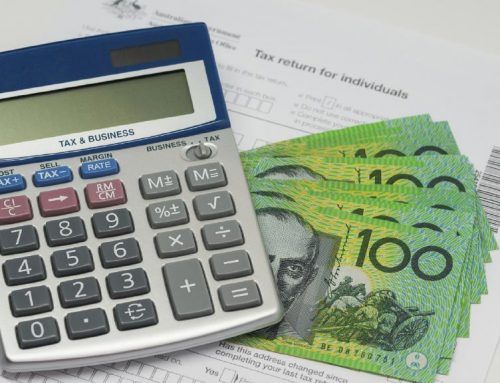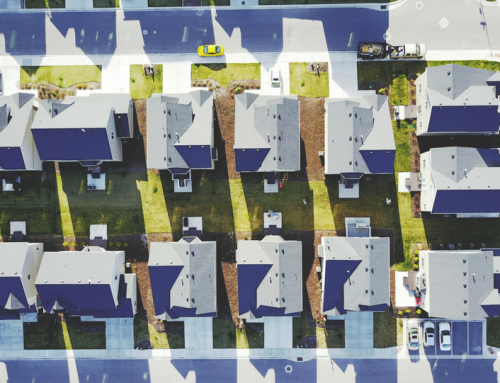The 2016 Federal Budget will have an impact on everyone’s lives – whatever your age, income, or employment status – so take a look at how things are going to change for you.
For first-time jobseekers
Scott Morrison announced that the government is giving a helping hand to anyone struggling to find their first job, by launching a new program called Young Jobs PaTH (Prepare, Trial, Hire). This will help 120,000 young people improve their job skills, offering guidance through the path to employment.
From next April, job seekers under 25 will be able to sign up for “intensive pre-employment skills training” which will help them gain confidence with things like working in a team, giving presentations, and using a computer.
The government is working with businesses which will offer these job seekers an internship program where they work 15-20 hours a week for one to three months.
While they are on internship, job seekers will continue to earn regular income support, topped up by an extra $200 per fortnight. Mr Morrison described it as “real work for the dole”.
For low-income earners
There’s some relief on the way for those towards the bottom of the pay scale. The threshold at which you have to start paying for Medicare is going up, and this will mean that over the next four years about $280 million will stay in workers’ pockets rather than going to the government.
The threshold will go up to $21,335 for singles, $36,001 for couples with no children, and $46,966 for senior and pensioner couples without children. Couples will have a further $3306 added to their threshold for each dependent child or student. Whoever worked those figures out really isn’t a fan of round numbers, are they?
Anyone earning less than $37,000 will get a refund of up to $500 on the tax they pay on their super, thanks to the government keeping a tax offset in place.
For small business owners
Great news for small businesses, as there’s another tax cut and it applies to more businesses than last time around.
Last year, businesses with a turnover of less than $2 million had their tax rate reduced from 30% to 28.5%.
This year, the rate has dropped again to 27.5%, and it will apply to businesses with a turnover under $10 million. This means that 60,000 businesses in the $2 million – $10 million bracket which missed out last year will now receive a 2.5% tax cut.
In total, there are around 870,000 businesses (employing 3.4 million Australians between them) which will benefit from the reduced rates. Woohoo!
And there’s more good news. The instant tax deduction that was introduced last year for business equipment under $20,000 has also been extended to businesses in the $2 million – $10 million group, but it expires on 30 June 2017 so there’s no time to waste.
For house-hunters
Well, we didn’t say it was good news for everyone. Although it’s not going to get any worse, the current system (which is leaving some first-time buyers struggling to fund their purchase) is staying in place. Capital gains tax discounts will remain the same, and negative gearing (which lets investors play the tax system to get more from their property investments) is not going to be removed or limited.
Still, Mr. Morrison thinks the average taxpayer should be thanking him for this.
“Those earning less than $80,000 a year in taxable income make up two thirds of those who use negative gearing,” he said in his speech.
“We do not consider that taxing these Australians more on their investments, including increasing their capital gains tax, and undermining the value of their own home and investment is a plan for jobs and growth.”
For property owners
Things will stay pretty much as they are now. Mr Morrison pointed out that any changes to the current system might have a negative impact on property owners by “undermining the value of their own home and investment”. He doesn’t want to “increase the tax burden on Australians who are just trying to invest”.
That’s his reason for leaving capital gains tax discounts and negative gearing as they are, even though these concessions are driving prices up and making life harder for first-time buyers.
For mums-to-be
There’s help in store if you plan to take time off work to have children.
So that your super savings don’t suffer so much, you’ll be able to rollover super balances for five years if you pay in less than $25,000 a year, and you’ll get up to $500 in tax refunded if you earn less than $37,000.
If you’re on a low income, your partner can also benefit from tax offsets if they pay into your super.
For uni students
The government is stalling on this one.
After the 2014-15 Budget announced plans for funding cuts and fee deregulation, students already had protests planned to respond to this year’s Budget.
But it seems that the government has listened to the people, and is now delaying things for another year while they “undertake further consultation” on the planned changes.
For anyone worried about terrorism
There’s $5 million in funding to counter violent extremism. $4 million of that is for the Attorney-General’s Department, who will work with states and territories to provide advice and support to the community. The remaining $1 million is for the Office of the Children’s eSafety Commissioner to provide educational resources to crack down on online radicalisation.
An additional $153.6 million is going to Australian Federal Police (AFP) and the Australian Crime Commission (ACC) for them to strengthen security against any terror threats.
For anyone worried about hacking
The government is ramping up funding for cyber security as the country becomes ever more dependent on the internet.
With $38 million of funding announced in the National Innovation and Science Agenda, the Budget is adding a further $195 million to provide Australia with a complete cyber security strategy.
That’s around $47 million towards setting up Joint Cyber Threat Centres, $21.5 million to expand our Computer Emergency Response Team (CERT), and $51 million towards public-private partnership investments and better protection for Commonwealth systems.
The AFP is getting $36.4 million over four years, and the ACC $16 million, all for the goal of fighting cybercrime.
For elite athletes
With the 2018 Commonwealth Games on the Gold Coast looming in the distance, the Government is planning to put $1.5 million into the Australian Sports Anti-Doping Authority over the next three years to fund anti-doping activities.
So any athletes out there take note, and make sure you play by the rules.











